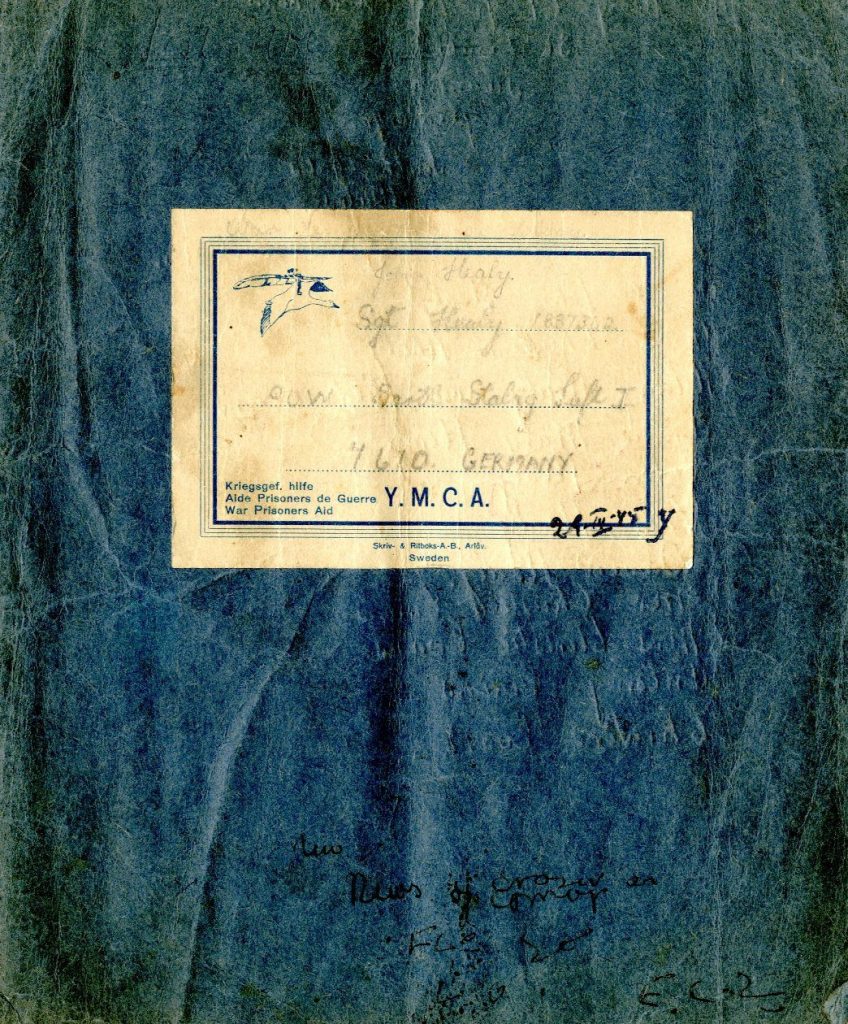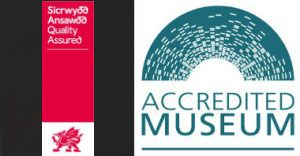Swansea Museum collection

Exercise book, used as a diary, blue paper covers, white lines paper. The diary of Swansea man John Healy, while prisoner of war in Germany during World War II. Front label on cover reads ‘Sgt John Healy, 1837362 POW Barth Stalag Luft 1 7610 Germany’. Flt. Sergeant John Healy (1922-2018) was in the RAF from 27th December 1943 to 5th March 1947. John joined the service as a rear gunner, flying Lancaster bombers with the 90 Squadron of the RAF. He was shot down in January 1945, and captured at Mutterstadt, Germany and was interned at Stalagluft 1, a prisoner of war camp in Barth, North Germany until May 1945 when he was released after their German guards deserted. In the diary he kept whilst in the camp, he wrote of meals he hoped to have on his release. John wrote in his diary some of the meals he longed for when he returned home- faggots and peas- lumps of cheese with plenty of bread and butter and cups of tea! On the cover of the book are the words YMCA Sweden.
Whist Swansea YMCA was active in on the home front as highlighted in blog 7, they were also supporting troops at the frontline. Many mobile units were sent overseas to support troops. Initially many of them in France were lost early in the war with the Dunkirk retreat. Later, another mobile unit paid for by Swansea YMCA was dispatched to North Africa.
Other services for soldiers overseas was organising the delivery of presents to loved ones or organising flowers for example for a wedding anniversary, all undertaken in Swansea by the Ladies Auxiliary.
The Ladies Auxiliary annual report for 1944 gives a flavour of their activities.
“Almost entire work was war work. Up to the end of 1944 we did duty on 6 static canteens and 5 mobile canteens. Due to the movement of troops Crymlyn Burrows is now closed.
Gifts to Home scheme – 100 bunches of flowers delivered along with other requests such a doll, a teddy bear, gramophone records and tickets for the pantomime.
Entertaining wounded soldiers at YMCA Central and £800 raised and sent to Cardiff for overseas work.
It was very hard work but I know we have derived much joy in the knowledge that by giving a little help and comfort to those in the services who are willing to sacrifice their all for us”
Another important role undertaken by the YMCA on an international level was the welfare of Prisoners of War (POW) held in Germany and other locations. John Healey’s diary was provided by the YMCA in Sweden. The work undertaken was similar to the Red Cross. Sweden being a neutral country during WW2, therefore YMCA Sweden would have been allowed to support British POW in camps.
A minute book for the Ladies Auxiliary in December 1945 records that Mrs Elliot Seager’s son reported missing was in fact in a POW camp in Germany, news of which had come through the YMCA.
Following the end of the war, the work quickly switched to the rebuild. A donation for example was given towards the rebuilding of Rangoon YMCA in Burma.
Reconciliation was also part of the agenda, already by 1948 a group of new German YMCA staff were at Swansea YMCA on a study tour.
Mr. D. L. Davies who ran the canteens (see blog 7) was later involved in refugee resettlement. Acting on behalf of the YMCA World Council in Geneva he negotiated the placement of 5,000 refugees to Canada.
The YMCA of course was not the only body raising money and supporting front line troops through mobile canteens. Post War Mr. Davies also visited the headquarters of General Montgomery at Fontainbleau. Outside the headquarters was a mobile canteen still in use and presented by the people of Llwcher (Loughor). The staff were apparently delighted to finally learn how to pronounce the name of the area, and find out where Llwcher was actually located.

